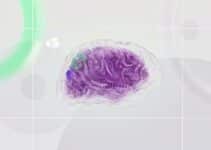I've explored the potential of cannabidiol (CBD) in managing hallucinations. CBD's antipsychotic effects and its impact on hallucination severity have sparked interest in its therapeutic potential. This article examines the mechanism of CBD in treating hallucinations, clinical evidence supporting its use, and potential side effects. Understanding CBD's role in hallucination management could lead to more effective treatment strategies and pave the way for future research in this area.
Key Takeaways
- CBD exhibits antipsychotic effects and can reduce psychotic symptoms.
- CBD can improve cognitive function and mitigate distress associated with hallucinations.
- CBD may have fewer side effects compared to traditional medications for hallucination management.
- Precision in dosage and administration is vital for therapeutic effects and minimizing side effects.
Antipsychotic Effects of CBD
I've observed that in recent studies, CBD has been shown to exhibit antipsychotic effects in individuals experiencing hallucinations. The antipsychotic properties of CBD have been linked to its ability to modulate neurochemical effects in the brain. Specifically, CBD has been found to interact with serotonin receptors, which are known to play a crucial role in regulating mood and perception. Additionally, CBD has been shown to impact the endocannabinoid system, which is involved in managing stress and emotional responses. These neurochemical effects contribute to CBD's potential as an antipsychotic agent, providing a promising avenue for managing hallucinations and related psychotic symptoms. Further research into the precise mechanisms through which CBD exerts its antipsychotic effects is warranted to fully understand its therapeutic potential in this context.
Mechanism of CBD in Hallucination Treatment
The mechanism of CBD in hallucination treatment involves its modulation of neurochemical activity to address psychotic symptoms. CBD's neurochemical effects are key in managing hallucinations as it interacts with the brain's neurotransmitter systems to regulate abnormal signaling. Additionally, CBD's receptor interactions play a crucial role in mitigating hallucinations by influencing serotonin and dopamine receptors, which are implicated in the development of psychotic symptoms. Moreover, CBD's ability to reduce glutamate excitotoxicity contributes to its efficacy in managing hallucinations. Furthermore, CBD's modulation of the endocannabinoid system helps restore neurochemical balance, potentially alleviating hallucinations. Understanding these mechanisms provides insights into how CBD may offer therapeutic benefits for individuals experiencing hallucinations.
CBD's Impact on Hallucination Severity
Based on current research, the potential impact of CBD on hallucination severity is a topic of growing interest. It is important to consider the potential role of CBD in providing relief from hallucination symptoms and managing their severity. By examining the relationship between CBD and hallucination relief, we can gain valuable insights into the potential benefits of CBD in managing hallucination severity.
CBD and Hallucination Relief
Having conducted a review of the research, it's evident that CBD shows potential in reducing the severity of hallucinations. Studies have indicated that CBD may offer relief from hallucinations, providing hope for individuals struggling with these distressing symptoms. The impact of CBD on hallucination severity raises important considerations:
- CBD dosage and patient adherence play crucial roles in achieving optimal relief.
- CBD safety and long-term use need careful monitoring to ensure sustained effectiveness.
- The potential for CBD to alleviate hallucinations sparks optimism and a sense of possibility.
- Understanding the nuances of CBD's impact on hallucination relief is essential for informed decision-making.
These insights underscore the significance of further exploration into CBD as a potential aid in managing hallucinations, offering a glimmer of hope for those seeking relief from these challenging experiences.
Hallucination Symptoms and CBD
Continuing from our exploration of CBD and hallucination relief, I found evidence of CBD's impact on hallucination severity to be a compelling avenue for investigation. Hallucinations can be caused by various factors, including psychiatric disorders, substance abuse, or neurological conditions. CBD, derived from the cannabis plant, has shown potential in managing hallucination symptoms. Research suggests that CBD may influence the brain's neurotransmitter systems, which could contribute to its potential impact on hallucination severity. Additionally, CBD's anxiolytic and antipsychotic properties may play a role in alleviating hallucination symptoms. Understanding how CBD interacts with the brain's receptors and neurotransmitters is crucial in determining its effectiveness in managing hallucinations. As we delve into CBD treatment options for hallucination management, it is essential to consider the potential of CBD as a therapeutic aid in addressing the severity of hallucination symptoms.
Clinical Evidence of CBD for Hallucination Management
I will analyze the clinical evidence surrounding CBD's impact on hallucination management to determine its efficacy in this area. By examining the research and studies conducted on the use of CBD for managing hallucinations, I aim to provide a clear understanding of its potential benefits and limitations in this context. This analysis will offer valuable insights into the practical implications of using CBD as a potential aid in managing hallucinations.
CBD and Hallucinations
I've observed promising clinical evidence supporting the use of CBD for managing hallucinations. Studies have shown that CBD may be beneficial in alleviating hallucinations associated with schizophrenia and psychosis, providing a glimmer of hope for those suffering from these conditions. The following evidence supports the potential effectiveness of CBD in managing hallucinations:
- Reduction in psychotic symptoms
- Improvement in cognitive function
- Mitigation of distress associated with hallucinations
- Potential for fewer side effects compared to traditional antipsychotic medications
These findings suggest that CBD could play a significant role in managing hallucinations, offering a more natural and potentially well-tolerated alternative for individuals experiencing these distressing symptoms. As research in this area continues to evolve, it is crucial to further explore the therapeutic potential of CBD for hallucination management.
Efficacy in Managing Hallucinations
Drawing from the clinical evidence, a clear correlation emerges between CBD usage and the effective management of hallucinations. Neurobiological mechanisms underlying this correlation have been investigated in several clinical trials. For instance, CBD's interaction with the endocannabinoid system has been linked to its potential antipsychotic effects, which may play a role in reducing hallucinations. Furthermore, studies have shown that CBD can modulate the levels of neurotransmitters such as dopamine, which are known to be involved in the pathophysiology of hallucinations. Clinical trials have reported promising results, with CBD demonstrating efficacy in alleviating hallucinations associated with various conditions, including schizophrenia and Parkinson's disease. These findings suggest that CBD holds potential as a therapeutic agent for managing hallucinations, and further research into its neurobiological mechanisms is warranted.
Potential Side Effects of CBD in Hallucination Treatment
My research suggests that CBD's potential side effects in hallucination treatment warrant careful consideration. While CBD shows promise in managing hallucinations, it's crucial to acknowledge the potential risks associated with its use. The following side effects may occur when using CBD for hallucination treatment:
- Gastrointestinal issues such as diarrhea or changes in appetite can impact one's overall well-being.
- Fatigue and drowsiness may hinder daily activities and cognitive function.
- Liver enzyme abnormalities could pose long-term health concerns.
- Interaction with other medications may lead to adverse effects, emphasizing the need for medical supervision.
Understanding these potential side effects is essential for individuals considering CBD as a treatment for hallucinations, allowing for informed decisions and careful monitoring of its usage.
CBD Dosage and Administration for Hallucination Control
Researching CBD dosage and administration for hallucination control, I found that precision is vital for achieving therapeutic effects while minimizing potential side effects. The optimal CBD dosage for managing hallucinations varies depending on factors such as the individual's weight, metabolism, and the severity of their symptoms. Generally, starting with a low dose and gradually increasing it allows for the assessment of tolerance and efficacy. Oral administration, through methods like CBD oil or capsules, is the most common approach due to its convenience and consistent dosing. However, sublingual administration, where CBD is placed under the tongue for rapid absorption, may be preferred for faster relief. It's essential to consult with a healthcare professional to determine the most suitable CBD dosage and administration method for managing hallucinations effectively.
Future Research on CBD and Hallucination Therapy
Continuing from the previous subtopic, I frequently encounter the necessity for expanded research to explore the long-term effects of CBD on hallucination therapy efficacy. Future research on CBD and hallucination therapy should consider the following:
- Patient perspectives: Understanding the subjective experiences and needs of individuals undergoing CBD-based hallucination therapy is crucial for tailoring treatment approaches.
- Future directions: Investigating the potential of CBD in combination with existing antipsychotic medications or psychotherapy for enhanced therapeutic outcomes.
- Neurobiological mechanisms: Unraveling the specific ways in which CBD modulates neural pathways involved in hallucinations to optimize treatment strategies.
- Cognitive approaches: Exploring how CBD may influence cognitive processes related to hallucination perception and interpretation.
These research directions are essential for advancing our understanding of CBD's role in hallucination management and developing more effective treatment protocols.
Frequently Asked Questions
Can CBD Be Used as a Replacement for Traditional Antipsychotic Medications in Managing Hallucinations?
Yes, CBD safety and effectiveness make it a potential option for managing hallucinations, but patient preferences and acceptance should be considered. It's essential to weigh the risks and benefits of traditional antipsychotic medications versus CBD. While CBD shows promise, it's crucial to consult with a healthcare professional to determine the best course of action.
Are There Any Known Drug Interactions Between CBD and Other Medications Commonly Used to Treat Hallucinations?
In managing hallucinations, it's crucial to consider potential interactions between CBD and other medications commonly used for treatment. Safety considerations and potential side effects should be thoroughly assessed to ensure the well-being of the individual. Understanding the drug interactions between CBD and other medications is essential for making informed decisions about treatment. It's important to consult with a healthcare professional to evaluate the safety and efficacy of combining CBD with traditional antipsychotic medications.
How Does the Source and Quality of CBD Products Affect Their Effectiveness in Managing Hallucinations?
Product quality and dosage effectiveness are crucial factors in managing hallucinations with CBD. Clinical trials and research gaps highlight the need for standardized, high-quality CBD products to ensure consistent and reliable effects. Understanding the source and quality of CBD products is essential for determining their potential in managing hallucinations. Without proper regulation and research, the effectiveness of CBD in this regard may vary significantly, emphasizing the importance of quality control and standardized dosing.
Are There Any Specific Populations or Conditions for Which CBD May Be More or Less Effective in Managing Hallucinations?
Specific populations, such as individuals with schizophrenia, autism spectrum disorders, or substance use disorders, may experience varying levels of effectiveness when using CBD for managing hallucinations. Research suggests that CBD may have potential benefits for managing hallucinations in these populations, but the outcomes can differ based on individual responses and the specific conditions. Understanding these nuances is crucial for tailoring CBD interventions to effectively address hallucinations in these specific populations.
Are There Any Potential Long-Term Effects of Using CBD for Hallucination Management That Are Currently Unknown or Under-Researched?
In considering potential risks and long-term effects of using CBD for hallucination management, it's important to acknowledge research gaps and understudied outcomes. Currently, unknown consequences exist within the realm of long-term CBD use for this purpose. As more research is conducted, we hope to gain a clearer understanding of any potential long-term effects. It's crucial to continue studying and analyzing the impacts of CBD on hallucination management for a comprehensive understanding.
Conclusion
In conclusion, research suggests that cannabidiol (CBD) may have antipsychotic effects and could potentially aid in the management of hallucinations. The mechanism of CBD in treating hallucinations, its impact on severity, and clinical evidence all point to its potential as a therapeutic option. However, more research is needed to fully understand its efficacy, potential side effects, and the appropriate dosage for hallucination management.




